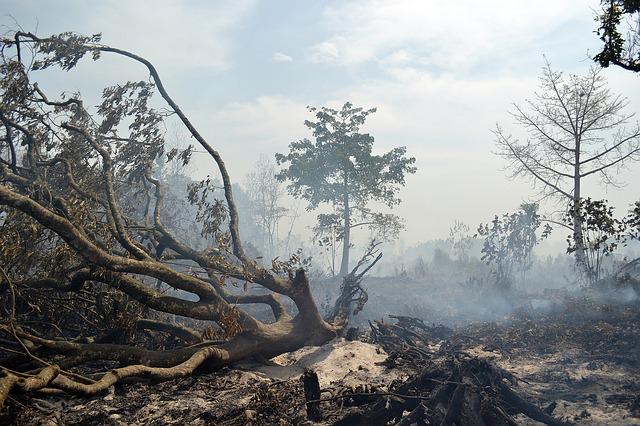
If you live close to the woods or in an area susceptible to wildfire smoke, you might want to be aware of the risks associated with exposure to this type of air pollution. Smoke from wildfires is made up of a mix of gasses and tiny particles, which can irritate your eyes, nose, throat, and lungs. It can also worsen chronic health conditions like asthma and heart disease. As a homeowner living close to the woods, you can follow wildfire smoke risks and safety tips mentioned in this article to stay safe. Take a look.
Stay Indoors as Much as Possible
One of the safest approaches to tackling a wildlife fire situation is to stay inside your home as much as possible. Avoid going on long walks, especially in or near the woods, try to stock up on groceries so that you don’t have to step out often, and if possible, invest in an air purifier for your home. Also, try not to dust your furniture or vacuum your floors too often, as this can stir up smoke particles that might have settled in these areas.
Avoid Physical Activity Outdoors
If you must go outside, avoid physical activity. Exercise increases the need for oxygen and causes you to breathe more deeply, which means you’ll inhale more of the particles in wildfire smoke. If you have asthma or another lung condition, carry your medication with you in case of an attack.
Wear Appropriate Gear
Wear a filter mask that covers your nose and mouth when you go outside. A paper mask will not protect your lungs from the tiny particles in wildfire smoke. Look for a mask with the words “N95” or “P100” on the package. These masks are designed to filter out at least 95% of the tiny particles in wildfire smoke.
Monitor Air Quality Reports
Pay attention to air quality reports, which you can find online or on your local news station. If the air quality is unhealthy, take extra precautions to protect yourself from exposure to wildfire smoke.
These precautions include:
- Not cooking food on wood fires outside your home: The smoke from these fires can add to the pollution in the air and make it even more harmful to breathe.
- Not using candles or incense: If you must use them, ensure they’re in a well-ventilated area.
- Not smoking: Cigarette smoke contains harmful chemicals that can irritate your lungs, so it’s best to avoid smoking altogether when air quality is poor.
Keep Your Eyes Healthy
Smoke can irritate your eyes, causing them to water and feel scratchy or gritty. To protect your eyes, wear sunglasses or goggles when you go outside.
Seek Medical Attention If Necessary
If you have asthma or another lung condition, pay close attention to your symptoms. If your symptoms get worse, call your doctor. If you have difficulty breathing, a rapid heart rate, or severe chest pain, go to the hospital.
Watch out for these red flags:
- Excessive coughing: You might cough more than usual when you have a cold, but if you’re coughing up mucus or blood, it could be a sign of something more serious.
- Wheezing: This high-pitched whistling sound is a common symptom of asthma. If you’re wheezing and your chest feels tight, it could indicate an asthma attack.
- Shortness of breath: This is a common symptom of asthma and COPD. If you’re short of breath, it means your lungs can’t get enough oxygen.
Final Word
Wildfire season is a time when you need to be extra careful to protect yourself from smoke exposure. Following these safety tips can minimize the risks associated with wildfires and keep yourself safe.



